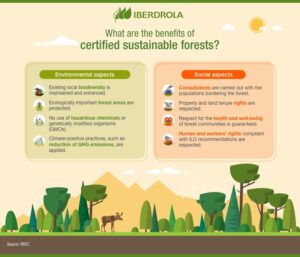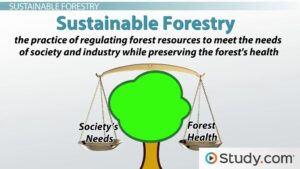In the face of climate change, the forestry industry finds itself at a crossroads, navigating the intricate balance between ecological resilience, social responsibility, and economic viability. This article delves into the economic considerations of adapting tree farming practices to the challenges posed by climate change, emphasizing the need for sustainable measures.
Introduction:
As global temperatures rise, the impact on weather patterns is felt worldwide. The United Kingdom is no exception, experiencing shifts that pose challenges to the forestry industry. In adapting to these changes, it becomes imperative to consider the economic aspects of tree farming, ensuring both the resilience of the industry and the sustainability of wood supply.
Economic Tree Farming Practices:
Tree farming practices are not only influenced by ecological factors but also by social and economic considerations. Climate change is introducing new challenges to the forestry industry, demanding adaptable measures. The importance of employing sustainable forestry techniques that account for the social and economic facets of tree farming is more apparent than ever. Adapting to resilient tree species becomes crucial for maintaining economic activities associated with forestry.

Challenges in Climate-Resilient Tree Farming:
While transitioning to climate-resilient tree species is essential, it is not without challenges. Traditional tree species may struggle to adapt to the changing climate, posing new problems for communities reliant on forestry for their livelihoods. This shift necessitates not only economic adjustments but also a broader reconsideration of the social dynamics tied to forestry.

The Role of Sustainable Forestry in Economic Stability:
Sustainable forestry practices play a pivotal role in ensuring economic stability amid climate change challenges. By adopting practices that balance ecological resilience with economic viability, the industry can navigate uncertainties. This includes not only transitioning to resilient tree species but also addressing social and economic considerations in the management of forests.
Conclusion:
In conclusion, the economic considerations of climate-resilient tree farming underscore the need for sustainable practices in the face of climate change. While challenges exist, embracing resilient tree species and incorporating social and economic factors into forestry practices can pave the way for a more economically stable and environmentally friendly future.

Backlink: Explore the economic aspects of sustainable forestry here.
This blog post is part of our ongoing series on “Sustainable Forestry in the Face of Climate Change.” Stay tuned for more in-depth insights into the challenges and solutions in the realm of forestry and climate resilience.